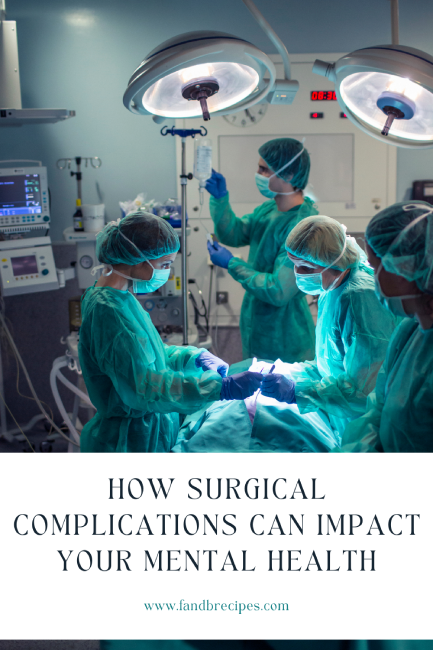How Surgical Complications Can Impact Your Mental Health
Undergoing surgery can be a daunting experience, but the possibility of experiencing surgical complications can make it even more challenging. Complications during surgery are undesirable outcomes that occur as a result of medical negligence. They can be minor or severe, and their impact on a patient’s mental health can vary greatly.
While surgical negligence solicitors can help with the legal and practical side of things, below we’ll be discussing how complications during surgery can have a long-lasting impact on your mental health.
What is Surgical Negligence?
Surgical negligence is a form of medical malpractice where a surgeon or medical staff fails to provide the standard of care required during surgery. This can include things like misdiagnosis, performing the wrong procedure, or not providing adequate aftercare. Negligence can cause physical, emotional, and financial harm to patients and can lead to long-term mental health problems.
Common Surgical Complications
Surgical complications can range from infections and bleeding to more serious issues such as organ damage or even death. While some complications are unavoidable, others are caused by surgical errors, negligence, or malpractice. Common examples of surgical complications include:
- Infection: Infection is a common complication that can occur after any surgery. It can be caused by bacteria, viruses, or other microorganisms that enter the body through surgical incisions or catheters.
- Haemorrhage: Bleeding during or after surgery can occur due to the patient’s blood not clotting properly, trauma during the procedure, or other factors. This can have a significant impact on the health of a patient. However, the fear and concern it can cause can lead to mental health problems.
- Organ damage: During surgery, some organs can be accidentally damaged, resulting in long-term health problems or even death. This can have a debilitating effect on mental health as this can have long-term complications. Furthermore, it might also lead to problems that could impact people in the future. What this means is that each patient is then playing a waiting game as they await the outcome of their organ damage.
- Anaesthesia complications: Complications from anaesthesia can range from minor side effects such as nausea and vomiting to more severe reactions such as allergic reactions or respiratory distress. While the risk is low, there are instances where this causes mental distress in people who have suffered from this issue.
How Surgical Complications Can Affect Your Mental Health
Experiencing a surgical complication can have a significant impact on a person’s health. The patient may experience anxiety, depression, stress, or trauma as a result of the surgery. They may struggle with adjusting to a new way of life, including restricted movement, changes in appearance, or loss of function. This can lead to feelings of isolation, frustration, and a loss of self-esteem.
Additionally, the financial impact of surgical negligence can cause mental distress. Patients may face mounting medical bills, loss of income due to time off work, or require ongoing medical treatment. These financial burdens can cause anxiety, depression, and other mental health issues.
Support for Patients
If you have experienced a surgical complication, it is important to seek help and support to manage the mental and emotional impact. Online and in-person support groups can be excellent resources for those who have undergone surgical complications.
These groups provide a safe space for patients to connect with others who have experienced similar situations, shared their experiences, and receive emotional support.
In addition to support groups, patients can also seek professional mental health counselling. This can help patients manage anxiety, depression, and other mental health issues related to their surgery. It can also help patients develop coping strategies for managing any physical limitations or changes in lifestyle resulting from their surgery.
Surgical negligence and mental health
Surgical complications can have a significant impact on a person’s mental health. Patients who experience complications may struggle with adjusting to a new way of life, financial burdens, and other issues.
It is important for patients to seek support and help to manage the mental and emotional impact of their surgery. Support groups and mental health counselling can be excellent resources for those who have undergone surgical complications. By providing a safe and supportive environment, patients can better manage the emotional toll of their surgery and work towards healing and recovery.
Please be advised that this article is for general informational purposes only, and should not be used as a substitute for advice from a trained legal professional. Be sure to consult a medical lawyer/solicitor if you’re seeking advice on surgical negligence. We are not liable for risks or issues associated with using or acting upon the information on this site.




